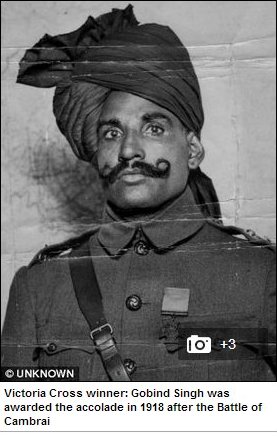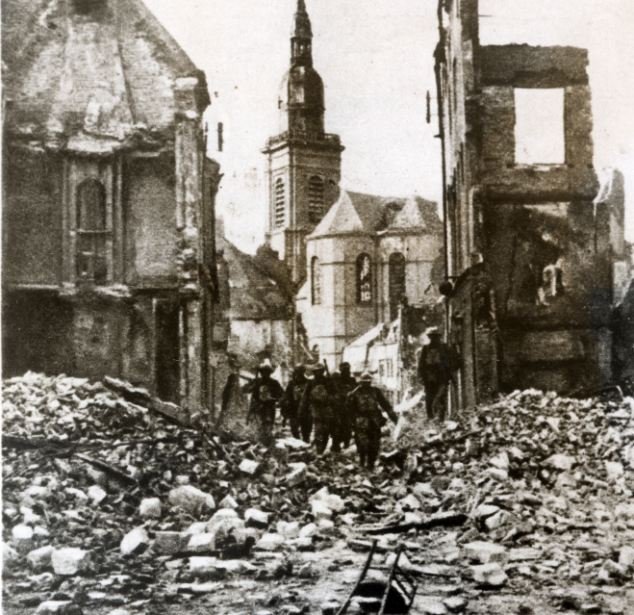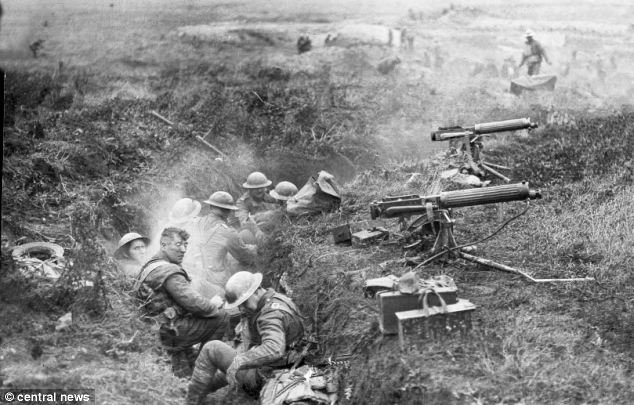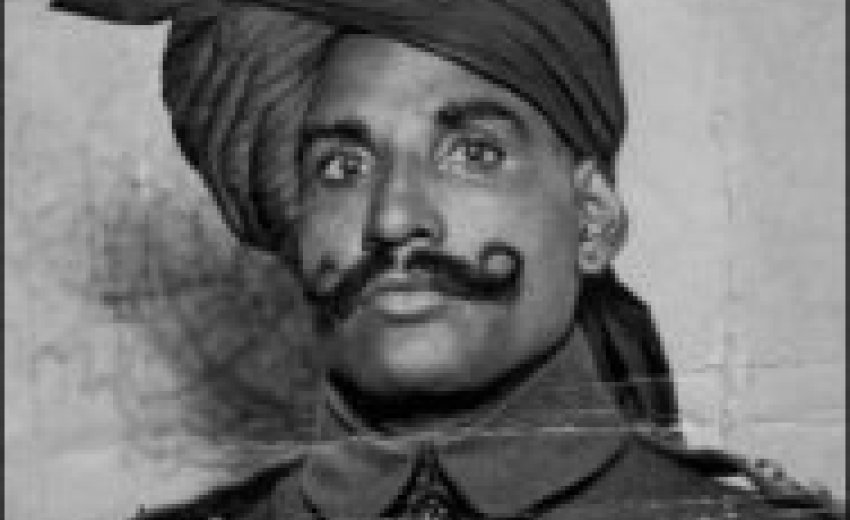Diaries reveal how Indian soldier delivered urgent messages under heavy fire despite his horses being shot
- Gobind Singh, 29, delivered messages during Battle of Cambrai in 1917
- Had three horses shot under him crossing 1.5miles of open fire
- Won Victoria Cross for 'most conspicuous bravery' on December 1
 13 March 2014: The Battle of Cambrai in 1917 is known as one of the first great tank offensives - but the diaries tell of the incredible heroism of horse cavalry there too.
13 March 2014: The Battle of Cambrai in 1917 is known as one of the first great tank offensives - but the diaries tell of the incredible heroism of horse cavalry there too.
They contain a graphic account of swords and lances being pitted against guns and of how an Indian soldier named Gobind Singh won the Victoria Cross for saving his fellow men by delivering urgent messages - despite having three horses shot under him as he did so and finishing each journey on foot.
At the heart of the action on December 1, midway through the bloody battle, was the Mhow Cavalry, a brigade of the Indian Army, which ‘advanced under heavy machine gun fire from the flanks’ but ‘most gallantly continued towards its objective’ of capturing a German position.
They had been ordered to ‘endeavour to push forward’ despite the non-arrival of 14 tanks which were supposed to be supporting them - and ‘galloped up to the trench and crossed it, pretending not to see the Germans, who let them go by.
They then turned about and galloped back under heavy machine gun fire.’
The report tells how on that day, December 1, some horses passed through a gap in a barbed wire fence, while others jumped it, then ‘a few men led by Lieutenant Broadway chased some retreating Germans.
‘Lt Broadway had already killed two Germans with the sword when he was treacherously killed by a revolver shot by a German officer, who raised one had in token of surrender keeping the other behind his back.
'The German officer was immediately killed by a lance thrust from a man following Lt Broadway.’
Having succeeded in helping to capture the outpost, the cavalry came under renewed attack, were cut off and surrounded.
But the report says ‘notwithstanding this and also heavy machine gun fire from both flanks, a sowar [mounted soldier] brought in two messages describing the situation to Brigade HQ. He had three horses shot under him but nevertheless was ready, and wished to return to his regiment’.
That sowar, unnamed in the diary report, was Gobind Singh, then aged 29, from a small village named Damoi in Rajasthan.
 |
| He crossed the 1.5-mile battlefield three times despite being under fire, and losing three horses
|
 |
| The Germans lost 50,000 men, and the British lost 45,000 during the bloody battle on December 1
|
His citation for the VC, the highest military award for bravery, in the London Gazette of January 11, 1918, reads: ‘For most conspicuous bravery and devotion to duty in thrice volunteering to carry messages between the regiment and brigade headquarters, a distance of over 1 1/2 miles over open ground which was under the observation and heavy fire of the enemy.
‘He succeeded each time in delivering his message, although on each occasion his horse was shot dead and he was compelled to finish his journey on foot.’
Singh survived the war and died aged 60 in 1942.
The Battle of Cambrai, which began in November 1917, was an attempt to break through the Hindenburg Line, a German defensive position on the Western Front.
Casualties were high with the Germans suffering overall losses of approximately 50,000 and the British 45,000.
The report in the diaries on the cavalry’s role on December 1 adds: ‘Too much cannot be said of the spirit and conduct of all ranks of the Central India Horse throughout the day.’
